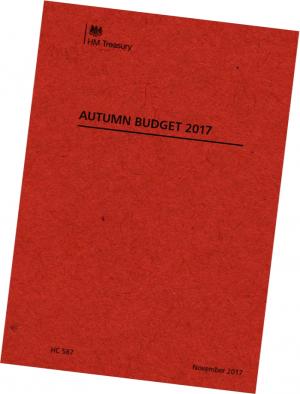



EDITORIAL
Most practitioners will by now be aware that the Chancellor, Philip Hammond, has decided to allow local authorities in England to increase the Empty Homes Premium to 100%, bringing the maximum rate in line with Wales and Scotland. Better late than never: this is a welcome move.
Giving back
The amounts of money that the Empty Homes Premium can bring in are significant, and an emerging Empty Homes Network policy is that if local authorities are charging this premium they also have an obligation to re-invest some of the revenue raised into their local empty homes initiative. Otherwise, the possibility exists that some local authorities might respond to the EHP option as a perverse incentive, enjoying the additional revenue generated by long-term empties rather than doing anything to address the waste of housing that the empties represent.
Hypothecation along the lines being suggested here is normally resisted by both local authorities and central government, but that should not deter us from arguing for it, The average citizen would probably understand and support the thinking behind it.
Lies, damned lies and newspaper reporting
As regards the reporting of the proposal, it is as woeful as anyone could wish for. In a typical headline, the Financial Times announces: 'UK Budget: Council taxes to double on empty properties'. Actually, the increase is a third, from 150% to 200% of normal tax rates.
The story immediately goes on to the next widely-broadcast nugget of misinformation, claiming that it is a move 'that will hit people with second homes'. Of course, by any accepted definition the premium will have no relevance for 'second homes' as they are excluded from the Empty Homes Premium, which in England only applies to homes that are 'substantially unfurnished.'
The baloney sandwich is completed with the comment that the revised levels of EHP are unlikely to have any impact on foreign buyers in central London. In this case, the comment is undoubtedly true but essentially irrelevant as far as the tens of thousands of long-term empties affecting communities up and down the country are concerned. The fact that this issue keeps getting focus in the media shows the disproportiionate influence of the metropolitan elite, though admittedly it usefully plays into more populist narratives that suggest that somehow foreigners are to blame for whatever mess it is that we happen to be focusing on today. Who needs UKIP when you can get the Guardian's Polly Toynbee to waste precious column inches blathering on about foreign property owners?
Whilst the FT story has been highlighted here, any quick websearch will show it to be a typical example; and unlike most reporting the FT's story does contain at least some of the small print that corrects its own headline.
Impact on public finances
One puzzling aspect of the new measure is the way it shows up in the companion Policy Costings document. Page 11 shows the new measure having a zero impact on the Exchequer through to 2021-22. At that point, it is suddenly shown as having a £5million positive impact.
Perhaps this implies a reduction in Formula Grant to local authorities to take account of increased revenue from EHP. If anyone has a better idea, answers on the back of a postcard please. Meanwhile, we will make some enquiries.
EHN policy
This may be the place to highlight EHN policies which would include:
- introducing a Second Homes Premium at similar levels to EHP (as in Wales)
- EHP to be chargeable after a year (as in Scotland and Wales)
- ring-fencing of some EHP for empty homes initiatives
